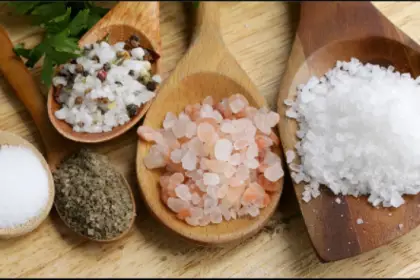The Emergence of “Frankenbananas”
In a world increasingly focused on healthy eating, bananas have been a staple for many due to their natural sweetness, fiber content, and essential nutrients. However, recent developments have raised concerns among fruit enthusiasts: genetically modified organisms (GMOs) are potentially making their way into our banana supply. This article delves into the rise of gene-edited bananas, often called “Frankenbananas,” and offers guidance on maintaining a GMO-free diet.
As we explore this issue, we’ll discuss the implications of GMO bananas, the broader context of GMOs in the food industry, and practical tips for avoiding them. This knowledge equips you to make informed decisions and uphold a natural, wholesome lifestyle.
GMO Bananas: A New Reality
The possibility of genetically modified bananas appearing in supermarkets has become a reality. These “Frankenbananas,” engineered in laboratories rather than developed through natural processes, have sparked debate. A UK-based biotech company, Tropic, created these bananas to prevent browning, much like GMO apples. While this enhancement aims to appeal to consumers, it has also raised significant concerns.
Critics argue that the lack of proper labeling leaves consumers unaware of what they are eating. Additionally, there are worries about the long-term safety of genetically engineered foods, with some noting a rise in health issues since GMOs became widespread in the 1990s. Adding to the controversy, the Philippines, a major banana exporter, has labeled these bananas as “non-genetically modified organism,” potentially allowing them to enter markets like the United States without clear labeling, creating confusion for those who prioritize natural foods.
Hidden Risks of GMO Bananas
The drive to keep bananas looking fresh through genetic modification introduces several hidden risks:
- Transparency Issues: GMO bananas often lack clear labeling, making it difficult for consumers to know if they are buying genetically modified products.
- Health Concerns: The long-term health effects of consuming GMO foods remain uncertain due to insufficient long-term testing, highlighting the need for ongoing research.
- Environmental Impact: Genetic modification can lead to environmental challenges, including reduced biodiversity, increased pesticide use, and the emergence of resistant pests and weeds.
- Ethical Considerations: The ethics of altering the genetic makeup of food and the potential control of the food supply by biotech companies are contentious issues.
Understanding these risks is crucial for those who value transparency, health, and the environment.
How to Avoid GMO Bananas
To maintain a natural diet, consider these tips for avoiding GMO bananas:
- Choose Organic: Look for USDA-certified organic bananas, which are free from GMOs and synthetic pesticides.
- Check PLU Codes: Organic bananas typically have a five-digit PLU code starting with the number 9, distinguishing them from non-organic ones.
- Support Non-GMO Brands: Buy from brands that are Non-GMO Project Verified, ensuring rigorous standards for GMO avoidance.
- Shop Locally: Farmers’ markets often feature produce from growers who use natural and sustainable practices, increasing the likelihood of GMO-free products.
Exploring Banana Varieties
Diversifying your banana choices can enrich your diet with different flavors and nutrients:
- Red Bananas: These have a sweet, creamy taste with a hint of tartness, and are rich in vitamin C.
- Plantains: A starchy variety, plantains are versatile in cooking and provide complex carbohydrates and dietary fiber.
- Finger Bananas: Small and sweet, these bananas are packed with potassium, vitamin B6, and vitamin C.
- Burro Bananas: Known for their lemony flavor, they offer dietary fiber, vitamin C, and vitamin B6.
Exploring these varieties can enhance your culinary experience and nutritional intake.
Maintaining a GMO-Free Diet
To stay GMO-free:
- Read Labels: Look for non-GMO certifications and organic labels.
- Prioritize Whole Foods: Choose fresh, minimally processed foods.
- Cook from Scratch: This gives you control over your ingredients.
- Stay Informed: Keep up with GMO developments and support transparent labeling.
Nurturing a GMO-Free Future
Your choices can impact the availability of natural foods. Advocate for GMO transparency, support sustainable agriculture, and engage with legislation. By holding food companies accountable and choosing non-GMO products, you contribute to a healthier and more transparent food system.
Embracing Natural Eating
Our exploration of GMO issues underscores the importance of informed food choices. By advocating for transparency, supporting sustainable practices, and choosing non-GMO products, we can shape a future where natural and wholesome eating is accessible to all. Let’s continue to promote a diet that aligns with health, sustainability, and transparency, ensuring a positive impact on our food system and the environment.





